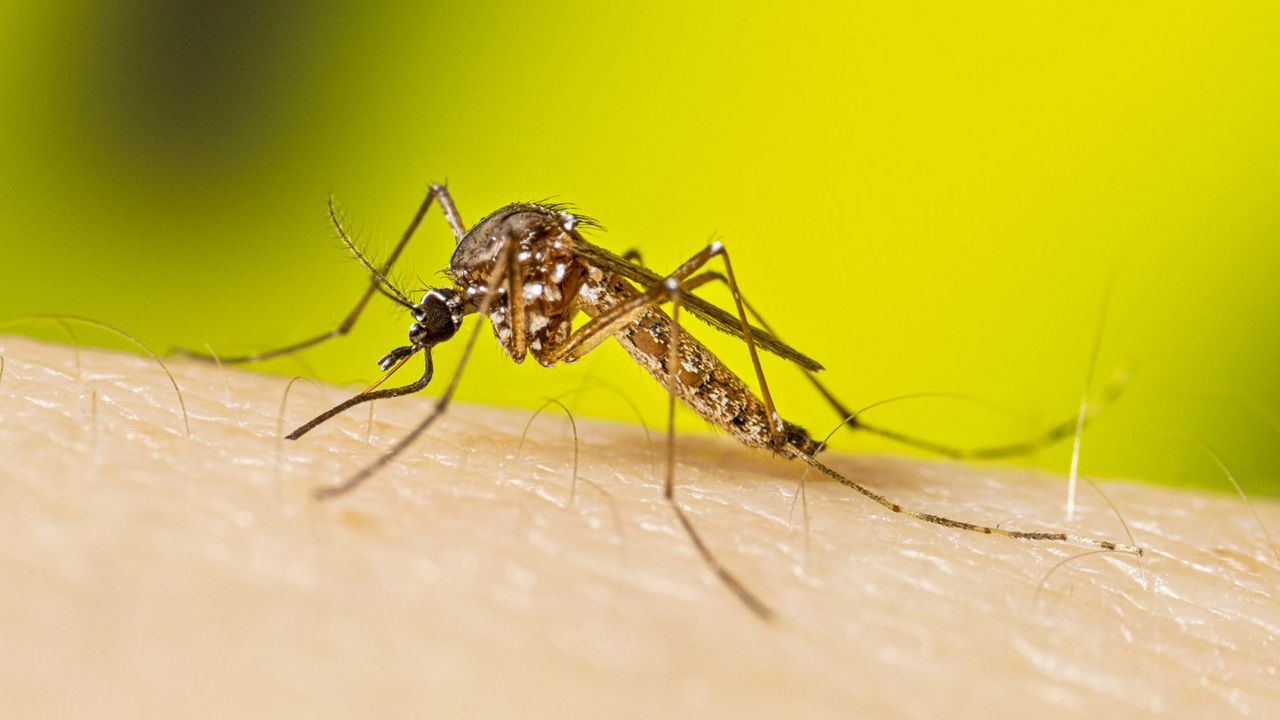CHICAGO, Ill. — The West Nile virus has been found in mosquitos and birds across 13 Illinois counties as mosquito season is in full swing, according to officials.
While no human cases of the virus have been reported, the Illinois Department of Public Health (IDPH) is reminding people of the importance to “Fight the Bite” during National Mosquito Control Awareness Week, June 16-22.
West Nile virus is transmitted through the bite of a house mosquito, which has picked up the virus by feeding on an infected bird, according to IDPH. Officials urge the public to “Fight the Bite” by practicing the three “Rs”— reduce, repel, and report.
There were 119 human cases reported last year, which is an increase from 34 human cases in 2022, according to IDPH. Six human deaths attributed to the West Nile virus were reported in 2023, compared to seven in 2022.
“West Nile Virus can lead to serious illness, especially for our Illinois seniors and people with weakened immune systems,” IDPH Director Dr. Sameer Vohra said.
“With the virus appearing earlier this year following a milder winter and spring, I urge everyone to fight the bite in their communities. Please reduce exposures, wear insect repellent while outdoors, and report any standing water around your community where mosquitoes can breed.”
So far this year, Illinois has had 11 positive mosquito pools and 10 positive birds from 13 counties, including Champaign, Cook, Douglas, Fulton, Kane, Hancock, LaSalle, Morgan, Washington, Whiteside, Williamson, Winnebago and Woodford, according to IDPH.
The first mosquito batches were found in May, approximately two weeks earlier than in a typical year.
“Monitoring for West Nile virus in Illinois includes laboratory tests for mosquito batches and dead birds, as well as testing sick horses and humans with West Nile virus-like symptoms,” IDPH states.
“People who see a sick or dead crow, blue jay, robin or other perching bird should contact their local county or city health department, which will determine if the bird will be picked up for testing.”
The IDPH says most people infected with the virus will not show any symptoms, but, in rare cases, it can lead to severe illness such as meningitis, encephalitis, or even death.
Common symptoms include fever, nausea, headache and muscle aches that may last from a few days to a few weeks.
Those at the highest risk for severe illness are people older than 60 and those with weakened immune systems, according to IDPH.
Below is how to reduce, repel, and report as stated by IDPH:
REDUCE: Make sure doors and windows have tight-fitting screens. Repair or replace screens that have tears or other openings. Try to keep doors and windows shut. Eliminate, or refresh each week, all sources of standing water where mosquitoes can breed, including water in bird baths, ponds, flowerpots, wading pools, old tires and any other containers.
REPEL: When outdoors, wear shoes and socks, long pants and a light-colored, long-sleeved shirt, and apply an EPA-registered insect repellent that contains DEET, picaridin, oil of lemon eucalyptus, IR 3535, para-menthane-diol (PMD), or 2-undecanone according to label instructions. Consult a physician before using repellents on infants.
REPORT: Report locations where you see water sitting stagnant for more than a week such as roadside ditches, flooded yards, and similar locations that may produce mosquitoes. The local health department or city government may be able to add larvicide to the water, which will kill any mosquito larvae.









